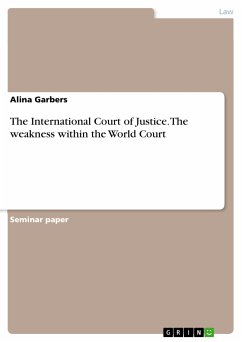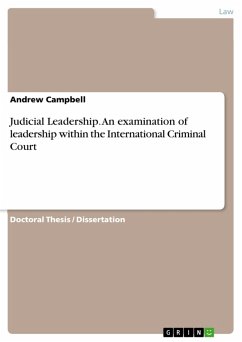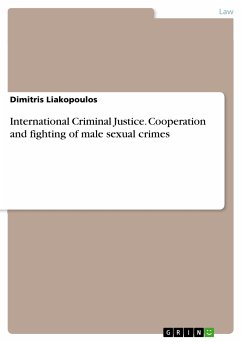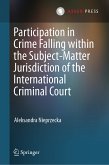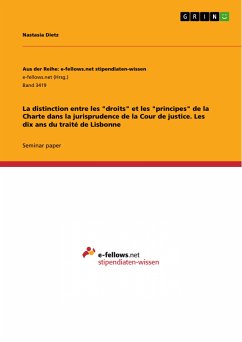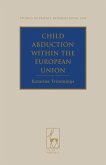Seminar paper from the year 2023 in the subject Law - European and International Law, Intellectual Properties, grade: 1,3, Christian-Albrechts-University of Kiel, language: English, abstract: While until the mid 2000's the proliferation of international treaties, conventions and organizations that intended to guide state's behavior could be found, scholars do currently observe a rejection of legalization and judicialization (Mondré et al 2010; Voeten 2022). This does not mean a hostile attitude towards "globalization, international organizations, and democracy" (Voeten 2022). States rather abandon bilateral investment treaties, and leave, or threaten to leave international courts (cf. ibid.). But this does not apply to all types of international treaties and Courts. States can, e.g., decide to leave the Rome Statute within the International Criminal Court (ICC), while they cannot decide to leave the International Court of Justice (ICJ) since it is, acc. to Art. 1 ICJ-Statute, the principal judicial organ of the United Nations and shall function in accordance with its provisions of the Statute. What they can do though, is to decide to withdraw from the "optional clause", acc. to Art. 36 para. 2 ICJ-Statute, meaning states may at any time declare that they recognize the jurisdiction as compulsory ipso facto and without special agreement or on the opposite avoiding the ICJ at all. A form of rejection or avoidance can thereby be determined, whenever states do not use the ICJ at all or withdraw from its optional clause as the United States did in 1985 after the Court issued an unfavorable jurisdictional decision in a case relating to a U.S. military intervention in Nicaragua (cf. Anderson 2018). Scholars describe this kind of behavior as "pushback", meaning states accept the system in general but do not use it on their own and practice criticism (Madsen et al 2018).
Dieser Download kann aus rechtlichen Gründen nur mit Rechnungsadresse in A, B, BG, CY, CZ, D, DK, EW, E, FIN, F, GR, HR, H, IRL, I, LT, L, LR, M, NL, PL, P, R, S, SLO, SK ausgeliefert werden.

